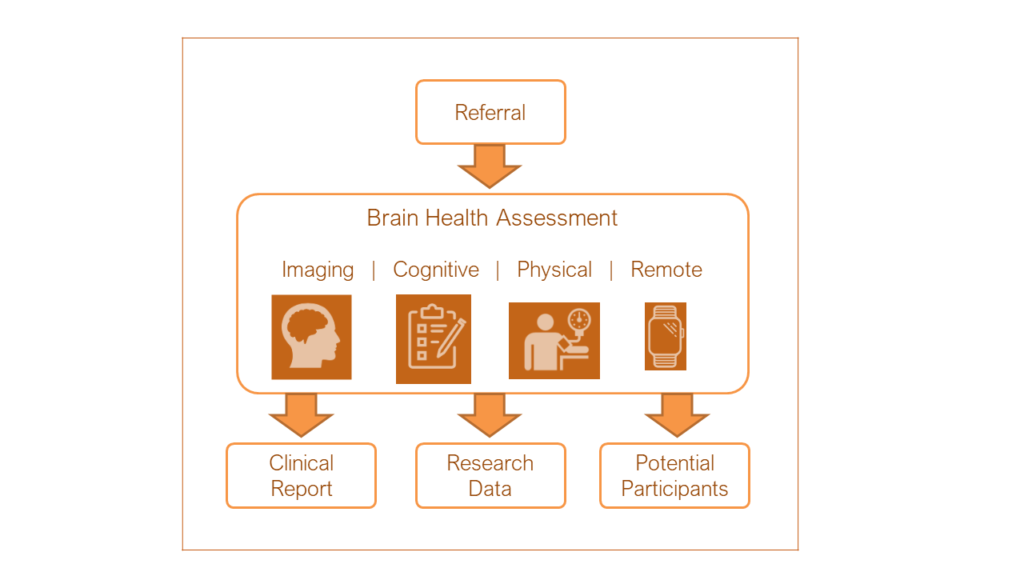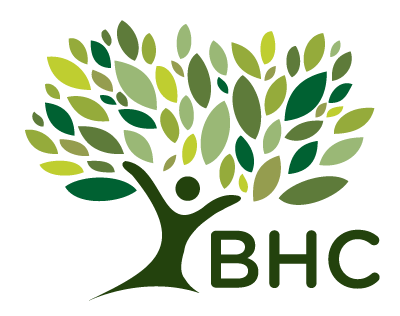Since August 2020, the Oxford Brain Health Clinic has focussed on providing high-quality assessments, not routinely available for NHS patients, to assist clinicians in the diagnosis of patients referred for memory problems. Over that time, more than 95% of patients have agreed to take part in research, providing the data to help us improve our understanding of the biomarkers of cognitive health.
Assessments
The clinical assessments currently undertaken at the Oxford Brain Health Clinic are:
- Clinical MRI scan (~15 mins): includes a 3D diffusion-weighted image, susceptibility-weighted image, high-resolution T1 structural, and FLAIR, reported by a clinical radiologist using a standardised framework for qualitative reporting developed by the BHC, including important negatives (e.g. tumour, CJD), atrophy, white matter hyperintensities, microhaemorrhages, infarcts/intracerebral haemorrhage, ventricular size, and other clinically relevant incidental findings
- Clinical cognitive assessment (~30 mins): Patients complete the ACE-III, which assesses five cognitive domains: attention, memory, language, verbal fluency and visuospatial function. They may also complete an additional cognitive assessment at the memory clinic
- A set of clinical questionnaires, covering depression, sleep, activity, alcohol use and long-term conditions, which is sent to patients prior to their appointment and brought with them to the Brain Health Clinic
- As part of the NHS assessment, the person accompanying the patient also completes an informant interview, including questions about changes in the patient’s cognition, behaviour and general function
Embedding research into clinical practice is central to the purpose of the Brain Health Clinic. All patients are offered the opportunity to take part in research with the aim of delivering greater, more diverse participation for the benefit of all involved. Patients can consent to one or more of the following:
- to have medical records stored and used for scientific research
- to be recontacted for future research studies
- to take additional assessments on the day of their medical assessment

Patients who consent to additional research assessments on the day of their visit have options, including:
- Research MRI: The patient remains in the MRI scanner for additional sequences which, where possible, have been matched to those used in the UK Biobank (1). This facilitates the future use of UK Biobank scans as normative data against which to compare data from Brain Health Clinic patients.
- Saliva sample: DNA is extracted and used for APOE genotyping.
Process
Brain Health Clinic appointments currently last up to 2.5 hours, including all NHS and research assessments. The clinical assessments alone take around 1.75 hours to complete. At the end of the clinic, staff generate a clinical report, including cognitive scores, questionnaire scores, a summary of the informant interview, qualitative clinical observations about the patient, and a summary of the research consents, which is uploaded into the Trust’s EPR system. Clinical MRI scans are reported separately by a neuroradiologist. Other research information is not provided in the clinical report but may be shared with the memory clinic if requested by the doctor.
Progress to date
The Brain Health Clinic is about to enter a phase of evaluation. In the meantime, a qualitative study was conducted in November and December 2020 exploring participating clinicians’ views of the Brain Health Clinic. Findings include:
- Clinicians had been concerned about the ability of patients to tolerate the MRI scan prior to the pilot. In practice, 92.5% of patients completed the scan
- Clinicians are positive about the enhanced reporting. They described the qualitative radiology report, implemented in the NHS reporting system, as ‘standardised’ and ‘helpful for diagnosis and patient feedback’. Pre-pilot, they had described radiology reports as ‘vague’, ‘variable’, and ‘often not helpful’
- The standardised radiology report reduced turnaround times and led to patients being seen faster
- The collaborative report (which summaries an interview with a friend/relative of the patient about the changes observed in the patient) was described as ‘a useful tool that can get a lot of information in quite a short amount of time’. Due to the overall thoroughness of the Brain Health Clinic assessment, a streamlining of the follow-up memory clinic appointment was reported, reducing it from 75 minutes to 45 minutes
- Despite the mix of clinical and non-clinical staff at the Brain Health Clinic, clinicians found the staff to be highly skilled, responsive to any issues and able to contain patient anxieties
- In general, clinicians reported that patients had a positive experience of both the assessment service and the option to take part in research. This is supported by the fact that >95% of patients consented to take part in research
- Clinician felt the integration of research in a clinical environment provided a learning opportunity
(1) Miller, K., Alfaro-Almagro, F., Bangerter, N. et al. Multimodal population brain imaging in the UK Biobank prospective epidemiological study. Nat Neurosci 19, 1523–1536 (2016).



